-
Hello,
Basically, like any good Mafia film, the Good Don, who was called Llewellyn the Second, was lured onto the turf of the Bad Boss, Edward "Long-shanks" (For those who saw Brave heart, that was that nasty Patrick McGoohan) for a little "chat" about nothing in particular. He murdered the Prince, and annexed my country.
Water under the bridge now, but basically for all intents and purposes I was a Brit. But I AM ALSO WELSH.
Now I am not going to apologies for the bloody Empire OK? IT WAS NOT MY FAULT! However, strange as it may seem, the annexation of my country still has ramifications to the culture and outlook of the Welsh.
We as a people tend to favour the underdog, we are a clannish folk, but we welcome outsiders, as long as they try to fit in. (This doesn't mean learning Welsh and eating Lavabread, just being friendly and sociable).
Now I live in New Zealand, a truly nice place, with nice people.
New Zealand Social affairs is dominated by relations between Maori, the indigenous peoples of New Zealand, and Pakeha, or non-indigenous New Zealanders, and especially the issue of "Cultural Sensitivity"
You don't touch the head, it is tapu, or sacred. You don't sit on any area where food or drugs are prepared. You don't put your feet up on tables. You do not wear shoes in the house etc.
I don't know why. Maybe they see it as a terrible imposition, I don't know. These same people objected when they brought home the "unknown Warrior" to a Maori ceremony last year. I found it moving personally, but there you go. In fact, these people object to any incorporation of Maori culture into mainstream New Zealand life, except the Haka before the Rugby.
Now I find this strangely familiar, for many years before I came to Aotearoa, the Welsh tried to get bilingual signage in Wales, to allow those of us who have Welsh as their first language the option of not having to translate their street name. I am not an Welsh speaker. My Dad's family are Scots, and my Mam's family are Irish, but I thought the preservation of the Welsh culture was worth fighting for, however, because I believe that cultural diversity is strength.
They felt threatened, I think partially because they feel that by defining ourselves as Welsh, that we undermine their choice to define themselves as British, as if they were mutually exclusive. I also believe that some saw it as the unnecessary re-emergence of a beaten people, and the reflex was to crush it.
New Zealands founding document is the Treaty of Waitangi, this legitimised White settlement of Aotearoa, and that gave checks and balances to Pakeha/Maori relations setting out a blueprint for a society based on mutual respect and honour.
As soon as there were enough Pakeha in New Zealand to defeat the Maori in battle, the treaty was interpreted in a way to favour the settlers, or ignored all together as long as it was expedient for the Colonial Government. Many Maori were tricked out of their land.
Over the next 150 years Maori were treated as second class citizens in their own land, denied housing, jobs and education. It is only relatively recently that No Maori Allowed signs have become extinct.
You will hear people say that somehow respecting Maori culture will undermine the social cohesion of New Zealand. How many cultures are there in Britain? Is a Yorkshireman like a Cornishman? Do they have the same culture? There is more cultural similarity between the people of Durham, and the people of South Wales, than there is between the South and North Walians. Does that make us weak as a nation?
I really think not. All that Britain has accomplished has often been because of the diversity in cultures in the UK, not despite it.
Those who object to New Zealand celebrating the Maori culture, and being told to respect Maori beliefs, are acting like the ruling class becoming scared at the resurgence of a culture they thought dead and buried.
Why can't we all be Kiwi's? Because being a Kiwi, and being Maori, or Welsh or Islamic or Chinese are Not Mutually Exclusive. You just have to accept that we all don't have to become a wannabe Pakeha to be a Kiwi.
The everyday tale of a small Welsh family transported to New Zealand on the whim of the "head" of the family, Mike
Saturday, October 20, 2007
Culture and Empire
Subscribe to:
Post Comments (Atom)
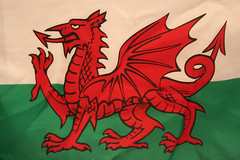
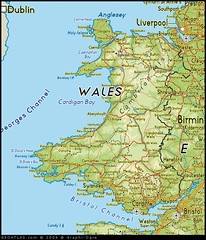



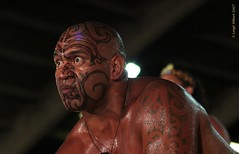
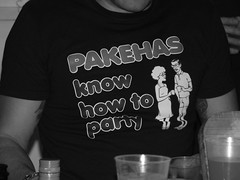
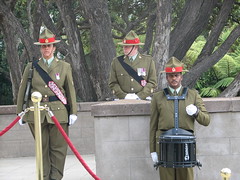
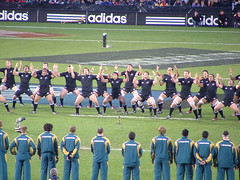
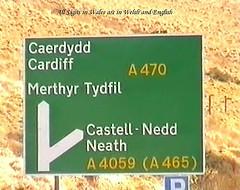
No comments:
Post a Comment